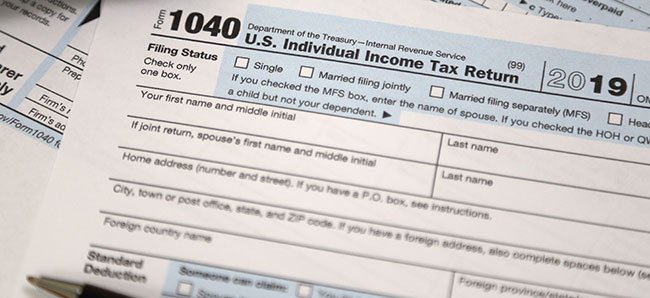The CARES Act/COVID-19 mean there are new considerations when it comes to taxes this year…
- Are the $1,200 stimulus checks taxable? Will recipients have to repay that money at some point?
- Quick answers: The $1,200 payments are technically “advance refundable tax credits”, much like the Affordable Care Act subsidies, and are not taxable as income. You may need to repay some or all of the money if your income in 2020 is too high – $75,000/single person or $150,000/married couple – for you to have been eligible.
- Are unemployment benefits taxable?
- The short answer is ‘yes’, but with some limitations. Federal and state unemployment payments are typically subject to federal and state income tax, but they aren’t subject to FICA or self-employment taxes. This is a savings of anywhere between 2.9% and 15.3% that might otherwise have been paid in taxes had that income not been from unemployment.
- You can have the paying entity withhold something for taxes – usually in the ballpark of 10%. This usually won’t cover all of the taxes you’re required to pay on that income, but it will mean you have to pay less come tax time next year.
- What’s going on with tax deadlines this year?
- The filing deadline for your 2019 tax returns has been moved to July 15th, as has the deadline for making first quarter Estimated Payments. This is particularly important for self-employed people who may have missed the traditional April 15th deadline for estimated payments.
- What are some of the less advertised tax benefits of the stimulus bills?
- Option to defer payment of employer payroll taxes for up to two years, which saves ~7.65% of payroll costs in the moment.
- Removal of limitations on pass-through business owners using business losses to offset other, unrelated income. Limit used to be $250,000/year ($500,000 for married couples).
- What other tax changes can we expect from future stimulus measures?
- Everything’s up in the air right now, but payroll tax relief is still on the table as something the Senate might push for. These taxes usually reduce paychecks by 7.65% and impose an additional 7.65% (of payroll) cost on employers.
- Additional tax relief could include moving the deadline for filing 2019 returns to October, moving (or eliminating) quarterly estimated payment deadlines. It could also include something more ambitious, like tax credits administered through payroll providers (instead of the IRS) in the hopes that they reach more people quickly and efficiently.
Things are moving pretty fast right now and the information can be confusing. Keep checking back to our Blog for updated information and helpful business tips at Blog – Law 4 Small Business, P.C. (L4SB).
We are all in this together and now, more than ever, Law 4 Small Business is here to help.
Law 4 Small Business, P.C. (L4SB). A little law now can save a lot later. A Slingshot company.



